- Home
- Lisa Kleypas
Love in the Afternoon Page 6
Love in the Afternoon Read online
Page 6
Turning around, Rye beheld his father on the floor and leaped on him, giggling.
Cam wrestled with his son, pausing briefly to inform his wife, “It’s not that quiet here.”
“I miss Jàdo,” Rye complained, referring to his cousin and favorite playmate. “When is he coming back?”
Merripen, Amelia’s sister Win, and their young son Jason, nicknamed Jàdo, had left a month earlier for Ireland to visit the estate that Merripen would someday inherit. As his grandfather was ailing, Merripen had agreed to stay for an indeterminate time to become familiar with the estate and its tenants.
“Not for a while,” Cam informed him regretfully. “Perhaps not until Christmas.”
“That’s too long,” Rye said with a wistful sigh.
“You have other cousins, darling,” Amelia pointed out.
“They’re all in London.”
“Edward and Emmaline will be here in the summer. And in the meantime, you have your little brother.”
“But Alex is hardly any fun,” Rye said. “He can’t talk or throw a ball. And he leaks.”
“At both ends,” Cam added, his amber eyes sparkling as he looked up at his wife.
Amelia tried, without success, to stifle a laugh. “He won’t leak forever.”
Straddling his father’s chest, Rye glanced at Beatrix. “Will you play with me, Aunt?”
“Certainly. Marbles? Jackstraws?”
“War,” the boy said with relish. “I’ll be the cavalry and you be the Russians, and I’ll chase you around the hedgerow.”
“Couldn’t we reenact the Treaty of Paris instead?”
“You can’t do a treaty before you have the war,” Rye protested. “There would be nothing to talk about.”
Beatrix grinned at her sister. “Very logical.”
Rye jumped up to grab Beatrix’s hand, and he began to drag her outside. “Come, Auntie,” he coaxed. “I promise I won’t whack you with my sword like the last time.”
“Don’t go into the woods, Rye,” Cam called after them. “One of the tenants said a stray dog came out of the hazel copse this morning and nearly attacked him. He thought the creature might be mad.”
Beatrix stopped and looked back at Cam. “What kind of dog?”
“A mongrel with a rough coat like a terrier’s. The tenant claims the dog stole one of his hens.”
“Don’t worry, Papa,” Rye said confidently. “I’ll be safe with Beatrix. All animals love her, even the mad ones.”
Chapter Seven
After an hour of romping along the hedgerow and through the orchard, Beatrix took Rye back to the house for his afternoon lessons.
“I don’t like lessons,” Rye said, heaving a sigh as they approached the French doors at the side of the house. “I’d much rather play.”
“Yes, but you must learn your maths.”
“I don’t need to, really. I already know how to count to a hundred. And I’m sure I’ll never need more than a hundred of anything.”
Beatrix grinned. “Practice your letters, then. And you’ll be able to read lots of adventure stories.”
“But if I spend my time reading about adventures,” Rye said, “I won’t actually be having them.”
Beatrix shook her head and laughed. “I should know better than to debate with you, Rye. You’re as clever as a cart full of monkeys.”
The child scampered up the stairs and turned to look back at her. “Aren’t you coming in, Auntie?”
“Not yet,” she said absently, her gaze drawn to the forest beyond Ramsay House. “I think I’ll go for a walk.”
“Shall I come with you?”
“Thank you, Rye, but at the moment I need a solitary walk.”
“You’re going to look for the dog,” he said wisely.
Beatrix smiled. “I might.”
Rye regarded her speculatively. “Auntie?”
“Yes?”
“Are you ever going to marry?”
“I hope so, Rye. But I have to find the right gentleman first.”
“If no one else will marry you, I will when I’m grown up. But only if I’m taller, because I wouldn’t want to look up at you.”
“Thank you,” she said gravely, suppressing a smile as she turned and strode toward the forest.
It was a walk she had taken hundreds of times before. The scenery was familiar, shadows broken by sunlight that came in shards through the tree limbs. Bark was frosted with pale green moss, except for the dark erosions where wood had turned into dust. The woodland floor was soft with mud, overlaid by papery leaves, ferns, and hazel catkins. The sounds were familiar, birdsong and swishing leaves, and the rustlings of a million small creatures.
For all her acquaintance with these woods, however, Beatrix was aware of a new feeling. A sense that she should be cautious. The air was charged with the promise of . . . something. As she went farther, the feeling intensified. Her heart behaved strangely, a wild pulse awakening in her wrists and throat and even in her knees.
There was movement ahead, a shape sliding low through the trees and rippling the bracken. It was not a human shape.
Picking up a fallen branch, Beatrix deftly snapped it to the length of a walking stick.
The creature went still, and silence descended over the forest.
“Come here,” Beatrix called out.
A dog came bounding toward her, crashing through brush and leaves. He gave the distinctive bay of a terrier. Halting a few yards away from her, the dog snarled and bared long white teeth.
Beatrix held still and studied him calmly. He was lean, his wiry fur stripped short except for comical whisks of it on his face and ears and near his eyes. Such expressive bright eyes, round as shillings.
There was no mistaking that distinctive face. She had seen it before.
“Albert?” she said in wonder.
The dog’s ears twitched at the name. Crouching, he growled in his throat, a sound of angry confusion.
“He brought you back with him,” Beatrix said, dropping the stick. Her eyes prickled with the beginnings of tears, even as she let out a little laugh. “I’m so glad you made it through the war safely. Come, Albert, let’s be friends.” She stayed unmoving and let the dog approach her cautiously. He sniffed at her skirts, circling slowly. In a moment she felt his cold wet nose nudge the side of her hand. She didn’t move to pet him, only allowed him to become familiar with her scent. When she saw the change in his face, the jaw muscles relaxing and his mouth hanging open, she spoke firmly. “Sit, Albert.”
His bottom dropped to the ground. A whine whistled from his throat. Beatrix reached out to stroke his head and scratch behind his ears. Albert panted eagerly, his eyes half closed in enjoyment.
“So you’ve run off from him, have you?” Beatrix asked, smoothing the wiry ruff on his head. “Naughty boy. I suppose you’ve had a fine old time chasing rabbits and squirrels. And there’s a damaging rumor about a missing chicken. You had better stay out of poultry yards, or it won’t go well for you in Stony Cross. Shall I take you home, boy? He’s probably looking for you. He—”
She stopped at the sound of something . . . someone . . . moving through the thicket. Albert turned his head and let out a happy bark, bounding toward the approaching figure.
Beatrix was slow to lift her head. She struggled to moderate her breathing, and tried to calm the frantic stutters of her heart. She was aware of the dog bounding joyfully back to her, tongue dangling. He glanced back at his master as if to convey Look what I found!
Letting out a slow breath, Beatrix looked up at the man who had stopped approximately three yards away.
Christopher.
It seemed the entire world stopped.
Beatrix tried to compare the man standing before her with the cavalier rake he had once been. But it seemed impossible that he could be the same person. No longer a god descending from Olympus . . . now a warrior hardened by bitter experience.
His complexion was a deep mixture of gold and copper, as if h
e had been slowly steeped in sun. The dark wheaten locks of his hair had been cut in efficiently short layers. His face was impassive, but something volatile was contained in the stillness.
How bleak he looked. How alone.
She wanted to run to him. She wanted to touch him. The effort of standing motionless caused her muscles to tremble in protest.
She heard herself speak in a voice that wasn’t quite steady. “Welcome home, Captain Phelan.”
He was silent, staring at her without apparent recognition. Dear Lord, those eyes . . . frost and fire, his gaze burning through her awareness.
“I’m Beatrix Hathaway,” she managed to say. “My family—”
“I remember you.”
The rough velvet of his voice was a pleasure-stroke against her ears. Fascinated, bewildered, Beatrix stared at his guarded face.
To Christopher Phelan, she was a stranger. But the memories of his letters were between them, even if he wasn’t aware of it.
Her hand moved gently over Albert’s rough fur. “You were absent in London,” she said. “There was a great deal of hullabaloo on your behalf.”
“I wasn’t ready for it.”
So much was expressed in that spare handful of words. Of course he wasn’t ready. The contrast would be too jarring, the blood-soaked brutality of war followed by a fanfare of parades and trumpets and flower petals. “I can’t imagine any sane man would be,” she said. “It’s quite an uproar. Your picture is in all the shop windows. And they’re naming things after you.”
“Things,” he repeated cautiously.
“There’s a Phelan hat.”
His brows lowered. “No there isn’t.”
“Oh, yes there is. Rounded at the top. Narrow-brimmed. Sold in shades of gray or black. They have one featured at the milliner’s in Stony Cross.”
Scowling, Christopher muttered something beneath his breath.
Beatrix played gently with Albert’s ears. “I . . . heard about Albert, from Prudence. How lovely that you brought him back with you.”
“It was a mistake,” he said flatly. “He’s behaved like a mad creature ever since we landed at Dover. So far he’s tried to bite two people, including one of my servants. He won’t stop barking. I had to shut him in a garden shed last night, and he escaped.”
“He’s fearful,” Beatrix said. “He thinks if he acts that way, no one will harm him.” Eagerly the dog stood on his hind legs and set his front paws on her. Beatrix bumped a knee gently against his chest.
“Here,” Christopher said, in a tone of such quiet menace that it sent a chill down Beatrix’s spine. The dog slunk to him, tail between his legs. Christopher took a coiled leather leash from his coat pocket and looped it around the dog’s neck. He glanced at Beatrix, his gaze traveling from the two smears of mud on her skirts to the gentle curves of her breasts. “My apologies,” he said brusquely.
“No harm done. I don’t mind. But he should be taught not to jump on people.”
“He’s only been with soldiers. He knows nothing of polite company.”
“He can learn. I’m sure he’ll be a fine dog once he becomes used to his new surroundings.” Beatrix paused before offering, “I could work with him the next time I visit Audrey. I’m very good with dogs.”
Christopher gave her a brooding glance. “I’d forgotten you were friends with my sister-in-law.”
“Yes.” Beatrix hesitated. “I should have said earlier that I’m very sorry for the loss of your—”
His hand lifted in a staying gesture. As he brought it to his side, his fingers curled into a tight fist.
Beatrix understood. The pain of his brother’s death was still too acute. It was territory he couldn’t yet traverse. “You haven’t been able to grieve yet, have you?” she asked gently. “I suppose his death wasn’t entirely real to you, until you came back to Stony Cross.”
Christopher gave her a warning glance.
Beatrix had seen that look from captured animals, the helpless animosity toward anyone who approached. She had learned to respect such a glance, understanding that wild creatures were at their most dangerous when they had the fewest defenses. She returned her attention to the dog, smoothing his fur repeatedly.
“How is Prudence?” she heard him ask. It hurt to hear the note of wary longing in his voice.
“Quite well, I believe. She’s in London for the season.” Beatrix hesitated before adding carefully, “We are still friends, but perhaps not as fond of each other as we once were.”
“Why?”
His gaze was alert now. Clearly any mention of Prudence earned his close attention.
Because of you, Beatrix thought, and managed a faint, wry smile. “It seems we have different interests.” I’m interested in you, and she’s interested in your inheritance.
“You’re hardly cut from the same cloth.”
Hearing the sardonic note in his voice, Beatrix tilted her head and regarded him curiously. “I don’t take your meaning.”
He hesitated. “I only meant that Miss Mercer is conventional. And you’re . . . not.” His tone was seasoned with the merest hint of condescension . . . but there was no mistaking it.
Abruptly all the feelings of compassion and tenderness disappeared as Beatrix realized that Christopher Phelan had not changed in one regard: he still didn’t like her.
“I would never want to be a conventional person,” she said. “They’re usually dull and superficial.”
It seemed he took that as a slight against Prudence.
“As compared to people who bring garden pests to picnics? No one could accuse you of being dull, Miss Hathaway.”
Beatrix felt the blood drain from her face. He had insulted her. The realization made her numb.
“You may insult me,” she said, half amazed that she could still speak. “But leave my hedgehog alone.”
Whirling around, she walked away from him in long, digging strides. Albert whimpered and began to follow, which forced Christopher to call him back.
Beatrix didn’t glance over her shoulder, only plowed forward. Bad enough to love a man who didn’t love her. But it was exponentially worse to love a man who actively disliked her.
Ridiculously, she wished she could write to her Christopher about the stranger she had just met.
He was so contemptuous, she would write. He dismissed me as someone who didn’t deserve a modicum of respect. Clearly he thinks I’m wild and more than a little mad. And the worst part is that he’s probably right.
It crossed her mind that this was why she preferred the company of animals to people. Animals weren’t deceitful. They didn’t give one conflicting impressions of who they were. And one was never tempted to hope that an animal might change its nature.
Christopher walked back home with Albert padding calmly beside him. For some reason the dog seemed improved after meeting Beatrix Hathaway. As Christopher gave him a damning glance, Albert looked up at him with a toothy grin, his tongue lolling.
“Idiot,” Christopher muttered, although he wasn’t certain if the word was directed at his dog or himself.
He felt troubled and guilty. He knew he’d behaved like an ass to Beatrix Hathaway. She had tried to be friendly, and he had been cold and condescending.
He hadn’t meant to be offensive. It was just that he was nearly mad with longing for Prudence, for the sweet, artless voice that had saved his sanity. Every word of every letter she’d sent him still resonated through his soul.
“I’ve done a great deal of walking lately. I seem to think better outdoors . . .”
And when Christopher had set out to find Albert, and found himself walking through the forest, a mad idea had taken hold of him . . . that she was nearby, and fate would bring them together that quickly, that simply.
But instead of finding the woman he had dreamed of, craved, needed for so long, he had found Beatrix Hathaway.
It wasn’t that he disliked her. Beatrix was an odd creature, but fairly engaging, and far more attractive
than he had remembered. In fact, she had become a beauty in his absence, her gangly coltish shape now curved and graceful . . .
Christopher shook his head impatiently, trying to redirect his thoughts. But the image of Beatrix Hathaway remained. A lovely oval face, a gently erotic mouth, and haunting blue eyes, a blue so rich and deep it seemed to contain hints of purple. And that silky dark hair, pinned up haphazardly, with teasing locks slipping free.
Christ, it had been too long since he’d had a woman. He was randy as the devil, and lonely, and filled with equal measures of grief and anger. He had so many unfulfilled needs, and he didn’t begin to know how to address any of them. But finding Prudence seemed like a good start.
He would rest here for a few days. When he felt more like his former self, he would go to Prudence in London. At the moment, however, it was fairly clear that his old way with words had left him. And Christopher knew that whereas he had once been relaxed and charming, he was now guarded and wooden.
Part of the problem was that he wasn’t sleeping well. Any slight noise, a creak of the house settling, a rap of a branch against the window, woke him to full heart-pounding readiness. And it happened in the daylight hours as well. Yesterday Audrey had dropped a book from a stack she was carrying, and Christopher had nearly jumped out of his shoes. He had instinctively reached for a weapon before recalling in the next instant that he no longer carried a gun. His rifle had become as familiar as one of his own limbs . . . he often felt it as a phantom presence.
Christopher’s steps slowed. He stopped to crouch beside Albert, looking into that shaggy fur-whisked face. “Hard to leave the war behind, isn’t it?” he murmured, petting the dog with affectionate roughness. Albert panted and lunged against him, and tried to lick his face. “Poor fellow, you have no idea what’s going on, do you? For all you know, shells may start exploding overhead at any moment.”
Albert flopped to his back and arched up his tummy, begging for a scratch. Christopher obliged him, and stood. “Let’s go back,” he said. “I’ll let you inside the house again—but God help you if you bite anyone.”
Unfortunately, as soon as they went into the ivy-covered mansion, Albert erupted in the same hostility he had shown before. Grimly Christopher dragged him to the parlor, where his mother and Audrey were having tea.

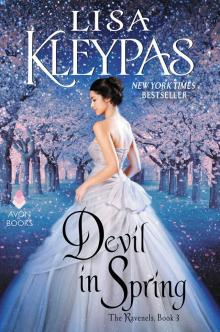 Devil in Spring
Devil in Spring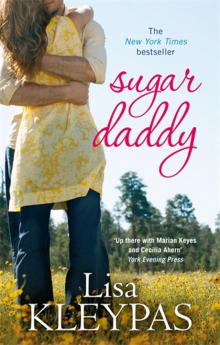 Sugar Daddy
Sugar Daddy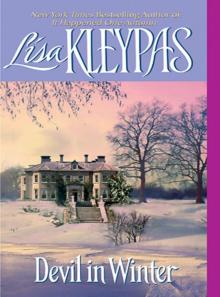 Devil in Winter
Devil in Winter Dreaming of You
Dreaming of You Christmas Eve at Friday Harbor
Christmas Eve at Friday Harbor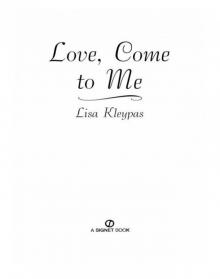 Love, Come to Me
Love, Come to Me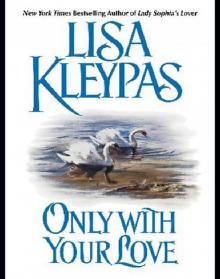 Only With Your Love
Only With Your Love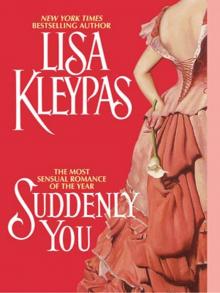 Suddenly You
Suddenly You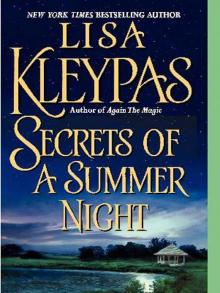 Secrets of a Summer Night
Secrets of a Summer Night Cold-Hearted Rake
Cold-Hearted Rake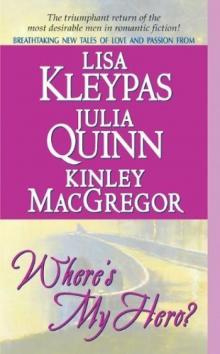 Where's My Hero?
Where's My Hero? Gifts of Love
Gifts of Love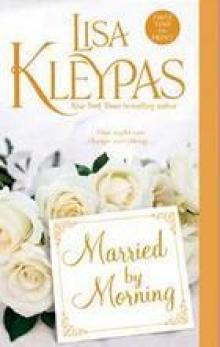 Married by Morning
Married by Morning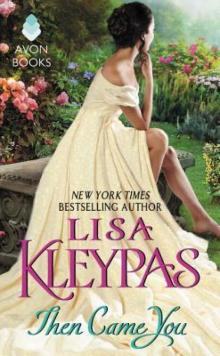 Then Came You
Then Came You Wish List
Wish List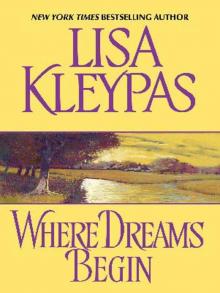 Where Dreams Begin
Where Dreams Begin A Historical Christmas Present
A Historical Christmas Present Somewhere I'll Find You
Somewhere I'll Find You Scandal in Spring
Scandal in Spring Someone to Watch Over Me
Someone to Watch Over Me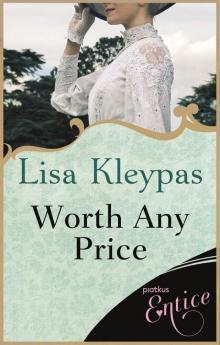 Worth Any Price
Worth Any Price Prince of Dreams
Prince of Dreams It Happened One Autumn
It Happened One Autumn Love in the Afternoon
Love in the Afternoon Devil's Daughter
Devil's Daughter A Wallflower Christmas
A Wallflower Christmas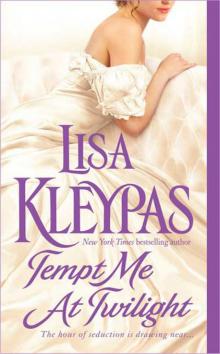 Tempt Me at Twilight
Tempt Me at Twilight Brown-Eyed Girl
Brown-Eyed Girl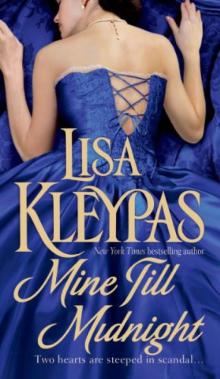 Mine Till Midnight
Mine Till Midnight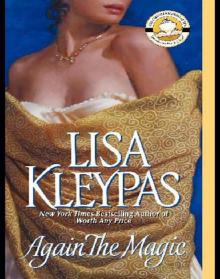 Again the Magic
Again the Magic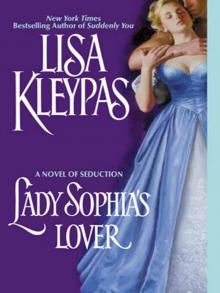 Lady Sophia's Lover
Lady Sophia's Lover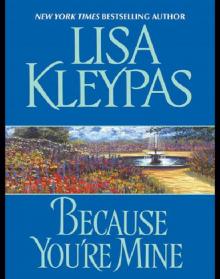 Because You're Mine
Because You're Mine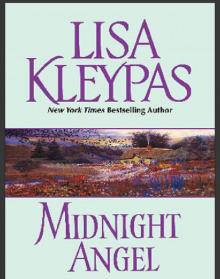 Midnight Angel
Midnight Angel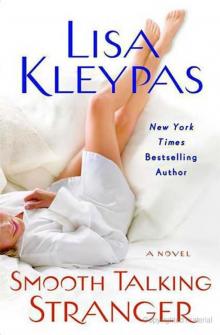 Smooth-Talking Stranger
Smooth-Talking Stranger Blue-Eyed Devil
Blue-Eyed Devil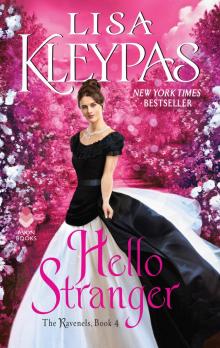 Hello Stranger
Hello Stranger Dream Lake
Dream Lake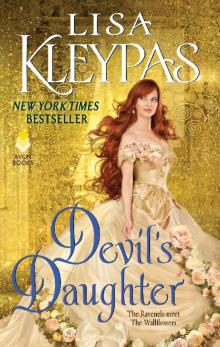 Devil's Daughter: The Ravenels Meet the Wallflowers
Devil's Daughter: The Ravenels Meet the Wallflowers A Christmas to Remember
A Christmas to Remember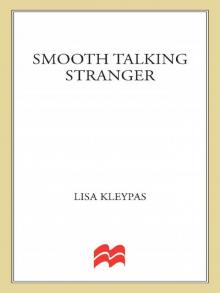 Smooth Talking Stranger
Smooth Talking Stranger Crystal Cove
Crystal Cove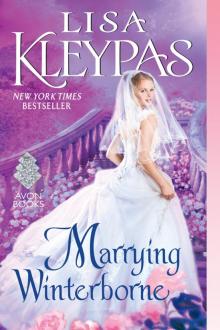 Marrying Winterborne
Marrying Winterborne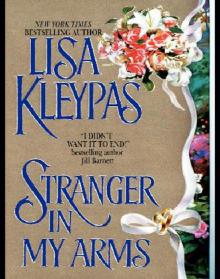 Stranger in My Arms
Stranger in My Arms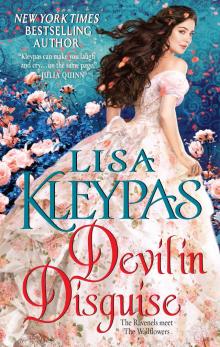 Devil in Disguise
Devil in Disguise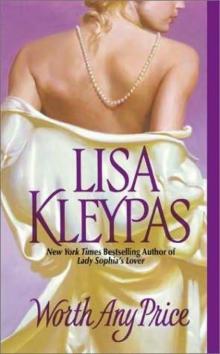 Worth Any Price bsr-3
Worth Any Price bsr-3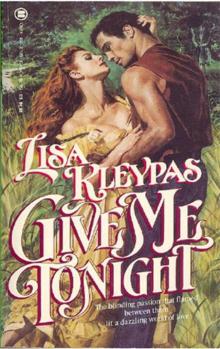 Give Me Tonight
Give Me Tonight Rainshadow Road fh-2
Rainshadow Road fh-2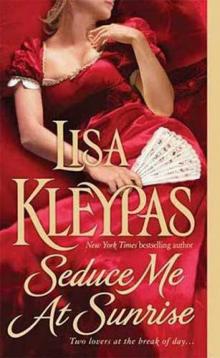 Seduce Me At Sunrise
Seduce Me At Sunrise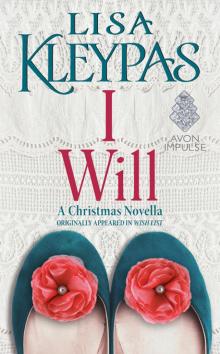 I Will
I Will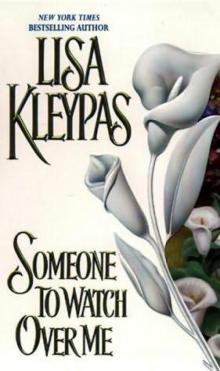 Someone to Watch Over Me bsr-1
Someone to Watch Over Me bsr-1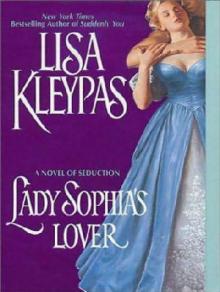 Lady Sophias Lover bsr-2
Lady Sophias Lover bsr-2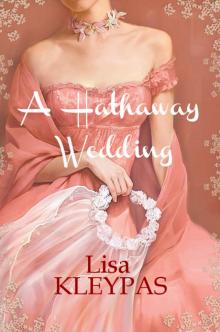 A Hathaway Wedding
A Hathaway Wedding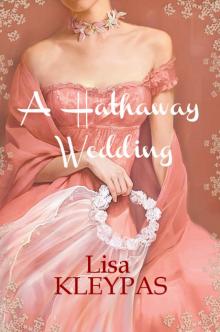 A Hathaway Wedding (Hathaways Bk2.5)
A Hathaway Wedding (Hathaways Bk2.5)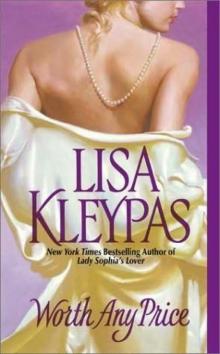 Worth Any Price - Bow Street 3
Worth Any Price - Bow Street 3 Christmas with Holly
Christmas with Holly